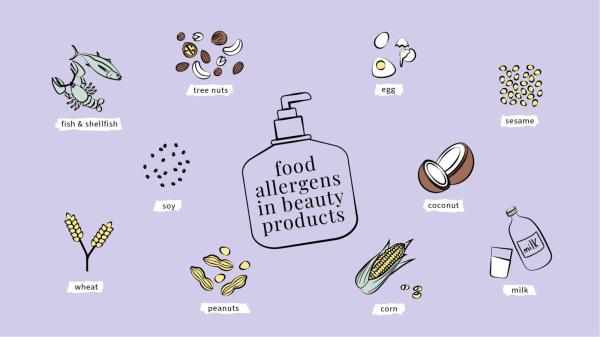| Makeup can contain a variety of allergens, including fragrances, preservatives (like parabens and formaldehyde), certain dyes, and ingredients derived from plants like nuts or soy. Navigating these allergens requires careful label reading, looking for terms like "hypoallergenic" (though not a regulated term) or "fragrance-free," and prioritizing products with short, recognizable ingredient lists. Patch testing new products on a small area of skin before full application is crucial to identify potential reactions. If you have known allergies, consulting a dermatologist or allergist can help determine safe products and manage potential reactions. 
Makeup allergies, while not as common as other types of allergies, can be significant and uncomfortable. They can range from mild irritation to severe reactions. Understanding the common allergens and how to navigate them is crucial for anyone concerned about sensitive skin or experiencing adverse reactions to makeup. Common Allergens in Makeup:- Fragrance: This is the most common allergen in cosmetics. "Fragrance" on an ingredient list is a catch-all term and can contain hundreds of undisclosed chemicals.
- Preservatives: Parabens (methylparaben, propylparaben, etc.), formaldehyde-releasing preservatives (imidazolidinyl urea, diazolidinyl urea, etc.), and others are often included to extend shelf life but can cause irritation or allergic reactions in some individuals.
- Formaldehyde: While sometimes listed directly, it more often appears as a formaldehyde-releasing preservative. Even trace amounts can trigger reactions.
- Lanolin: Derived from sheep's wool, it can be irritating or cause allergic contact dermatitis.
- Propylene Glycol: A humectant used to retain moisture, it can be irritating for some.
- Certain pigments: Certain colorants, particularly those containing metals (e.g., chromium, nickel, cobalt), can cause allergic contact dermatitis. Red dyes are particularly problematic.
- Talc: A mineral powder, it can be contaminated with asbestos and is linked to respiratory issues. While its use is declining, it still appears in some products.
Navigating Makeup Allergens:- Patch Testing: Before using a new product, perform a patch test. Apply a small amount to an inconspicuous area (like the inside of your elbow) and wait 24-48 hours to observe any reaction. Redness, itching, swelling, or burning are signs of a potential allergy.
- Read Labels Carefully: Pay close attention to ingredient lists. Look for products labeled "fragrance-free," "hypoallergenic," or "sensitive skin." However, be aware that "hypoallergenic" isn't strictly regulated, so it doesn't guarantee complete absence of allergens.
- Choose Mineral Makeup: Mineral makeup often contains fewer ingredients and is less likely to contain common irritants. Look for products with ingredients like zinc oxide and titanium dioxide.
- Identify Your Allergens: If you've experienced a reaction, keep a detailed record of the product and its ingredients. This can help you identify specific allergens and avoid them in the future. An allergist can perform allergy testing to pinpoint the exact culprit.
- Start with Minimal Makeup: Use only a few products at a time, especially when trying new ones. This helps isolate the source if a reaction occurs.
- Clean Brushes Regularly: Dirty makeup brushes can harbor bacteria and allergens, exacerbating reactions. Clean them regularly with a gentle cleanser.
- Consult a Dermatologist or Allergist: If you suspect a makeup allergy or experience a severe reaction, consult a dermatologist or allergist. They can diagnose the allergy, recommend treatment, and advise on appropriate products.
By understanding common makeup allergens and taking preventative measures, you can significantly reduce your risk of experiencing an allergic reaction and enjoy using makeup without discomfort. Remember to always prioritize your skin health.
Tags: Formaldehyde Fragrance Fragrance-Free Hypoallergenic Makeup Allergies Parabens Sensitive Skin  
|
 2,158
2,158  0
0  0
0  3350
3350 